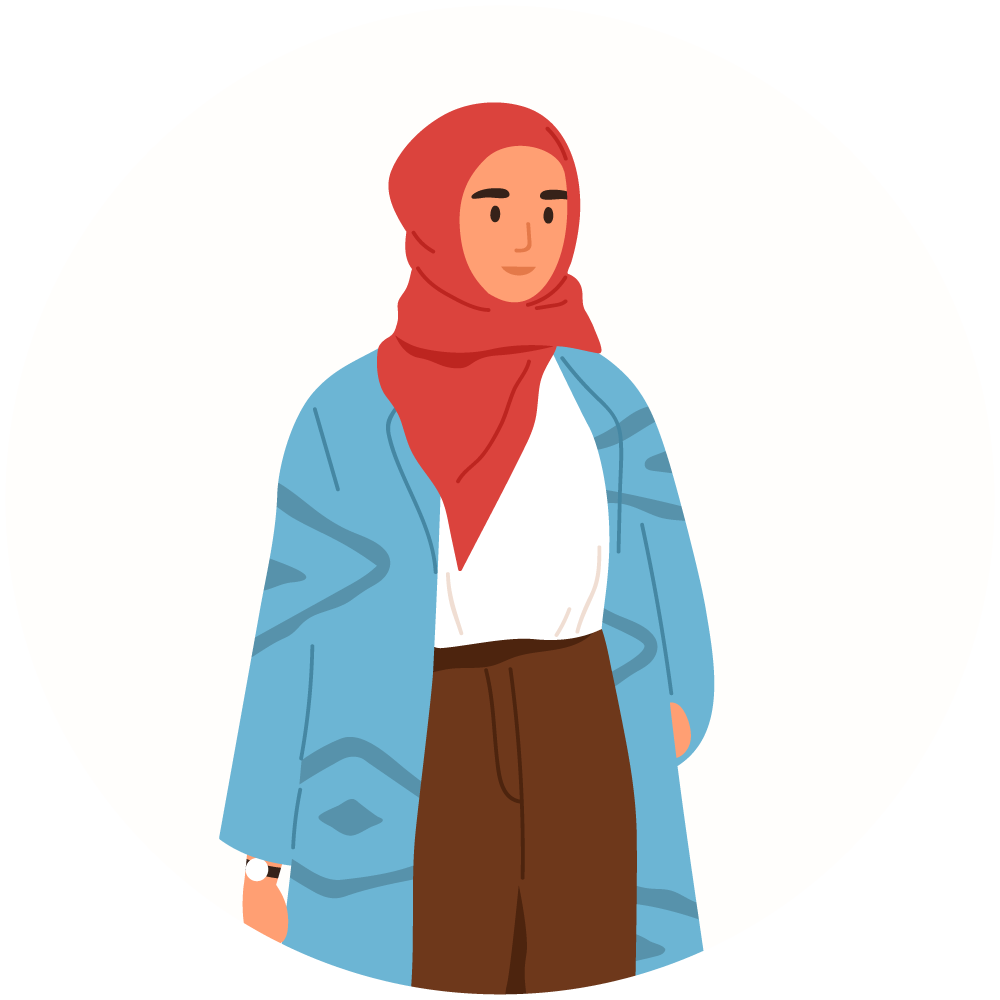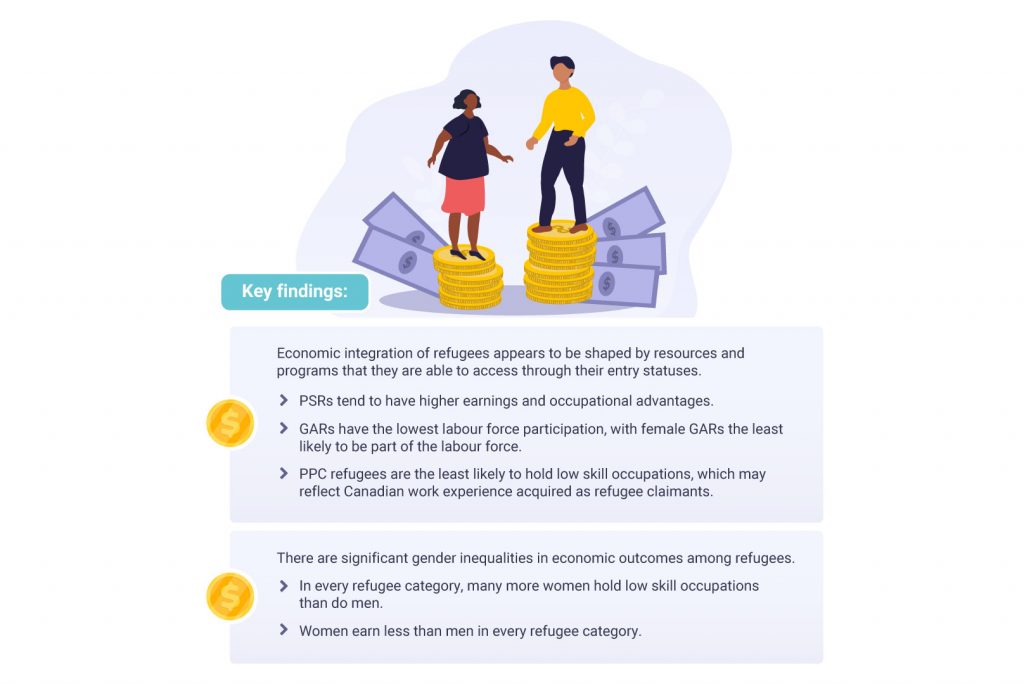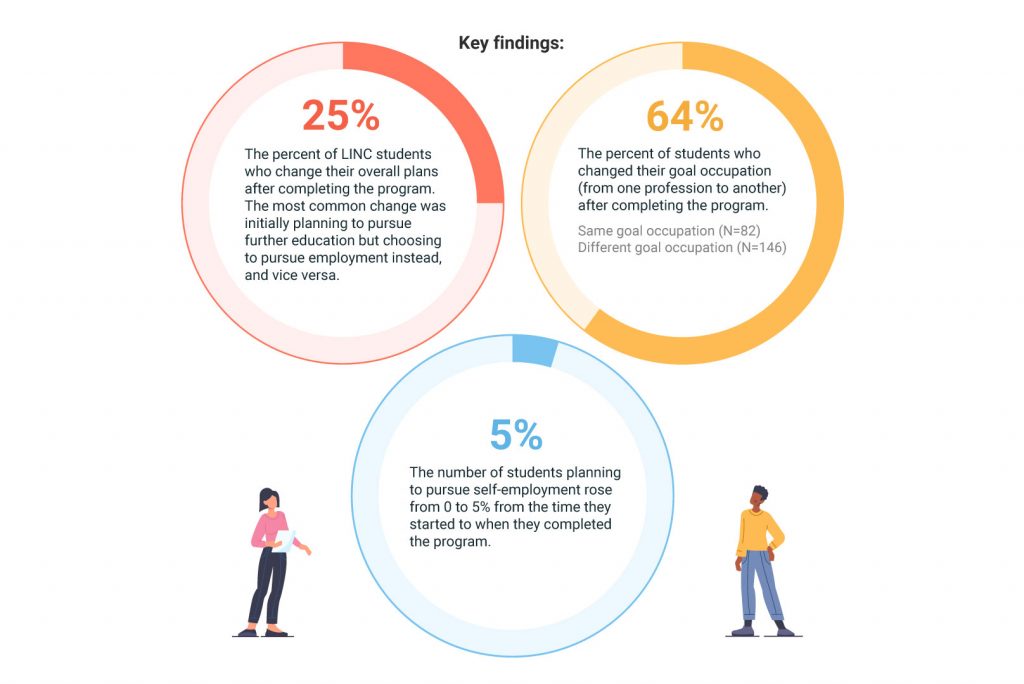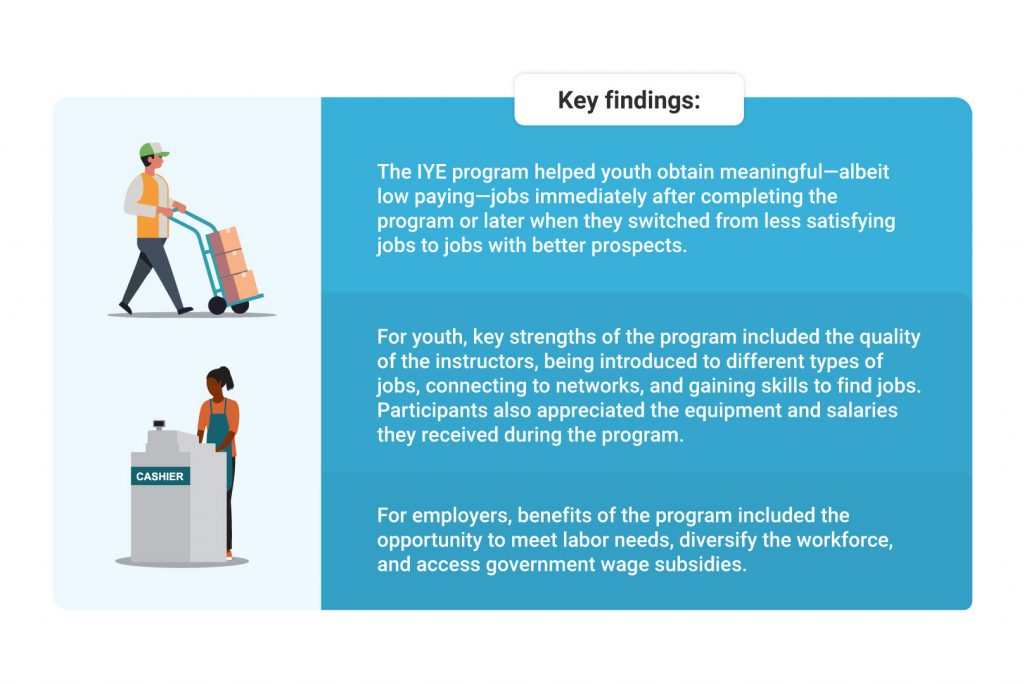Economic outcomes: Career goals and challenges, economic outcomes, and employment supports for refugee youth
- The Refuge Podcast: Transitions: Settlement, School, and Work
Working and having career aspirations are important aspects of belonging and settlement
In a study by Dr. Catherine Bryan and colleagues, newcomer youth reported that feeling valued, being successful, and attaining professional and personal development at work helped them feel more connected to Canadians. Dr. Ifeyinwa Mbakogu and colleagues similarly found that employment is linked to a sense of belonging for youth with refugee experience in Nova Scotia. Employers have a role to play in helping newcomer youth feel integrated and supported in other areas of their life.
“Right now I am working at a pharmacy as a pharmacy assistant and at the same time I am working during the weekends at XX…I have been working with them for three years and they really like me, and you know… when I started at [University]…every year they give a bursary for your school.” – Jana, 19-year-old from Syria, PSR

Dr. Lisa Rochman and colleagues found that participants in the Language Instruction for Newcomers to Canada (LINC) program frequently revised their career goals as they built their new lives in Canada. The researchers suggest that changing one’s career goal should be seen as an act of settlement, not a “failure”.

“When I came to Canada, I was thinking of a career in seniors’ healthcare. Then I changed my goal for Nursing. My dream is to help people. So, I looked for Nursing programs, but there are long waitlists, and then the programs are four years long – that’s long for me. … I changed my goal to doing Ultrasound. I found it online. Ultrasound is two years, and I asked around: not a lot of people here are looking to be trained in Ultrasound … After I finish Ultrasound training, I want to help anyone who needs it, anywhere. …I will look for a good job and give back to Canada. Canada, she gives me good space, and good health and good learning, and in return I want to find a good job after I finish ultrasound training.” – Participant #2, NorQuest College
For many newcomers, their first job in Canada does not align with their career aspirations.
Dr. Lisa Rochman and colleagues found that newcomers have clear career goals and a strong understanding of how to achieve them at the time of completing their LINC program, however there is a significant gap between their occupations post-LINC completion and their career aspirations.
A survey of newcomer youth by Dr. Catherine Bryan and colleagues found that the majority of participants deemed their salaries to be insufficient to support a family or to connect to the community in which they lived. This resulted in lower happiness in one’s job and sector.
Dr. Ifeyinwa Mbakogu found that youth with refugee experience are steered towards low-skilled and physically demanding jobs. Factors contributing to this included teachers suggesting that students with refugee experience should lower their aspirations, racism from employers, foreign credentials not being recognized, language barriers, and only having access to low-skilled jobs when participating in newcomer employment programs.
“They should provide a variety of jobs and they should accept immigrants for work in those types of jobs. Like most of these organizations that help immigrants, they only give them, like, their starting jobs like cleaning, you know those kinds of jobs where you have to work really hard for you to earn a living.” – Elijah, 24 years old, from DRC, GSR


“They…see you, like, as Black and they discriminate against you. Me and my friend went to apply to a store at Shopping Center and they called me for an interview and the manager just looked at me in a bad way … Then he said no…we cannot accept you, we don’t like black people working here. And first of all, you are not wearing…because there at the Shopping Center you have to wear clothes like mini skirt...”
– Azeez, 18 years old, from DRC, GSR
“I know he used to say that with our background level we can never be accepted to Dal. We could just go to NSCC. That’s all.”
– Azeez, 18 years old, from DRC, GSR

Refugees are more likely to work low skilled jobs and earn less than other immigrants. Women earn less than men in every refugee admission class.
Data from a study by Dr. Monica Boyd and colleagues showed that refugees are more likely to be employed in low skilled occupations and have lower earnings than economic or family stream immigrants.
Privately sponsored refugees (PSRs) have slight earnings and occupational advantages over government sponsored refugees (GARs) and protected persons in Canada (PCC). GARs have the lowest labour force participation and the lowest occupational socioeconomic scores.
Women are more likely to hold low skill occupations and earn less than men in every refugee admission category.
Main Takeaways:
- More supports and services are needed to improve economic outcomes and labour market integration of refugee women.
- Newcomer youth employment programs should introduce youth to a diverse range of jobs and opportunities, both paid and volunteer.
- There is need for cultural sensitization training among employers to ensure smooth integration of newcomers and to reduce discrimination from co-workers. Newcomer youth need programs that sensitize them to Canadian workplace norms and culture.
- Newcomer youth employment programs should include sufficient placement hours for participants to put their newly acquired skills and knowledge into practice.
- More support is needed to help LINC students achieve their career goals post-LINC.
- More newcomer youth supports and services are needed in rural areas.
- Infographics
Boyd and colleagues “Differences in Economic Outcomes by Entry Program and Gender” (2021)
Click to view infographic
Rochman and colleagues “How Career Goals of LINC Students Change Over Time” (2021)
Click to view infographic
Bryan and colleagues “Evaluating ISANS’ Youth Employability Program” (2021)
Click to view infographic



